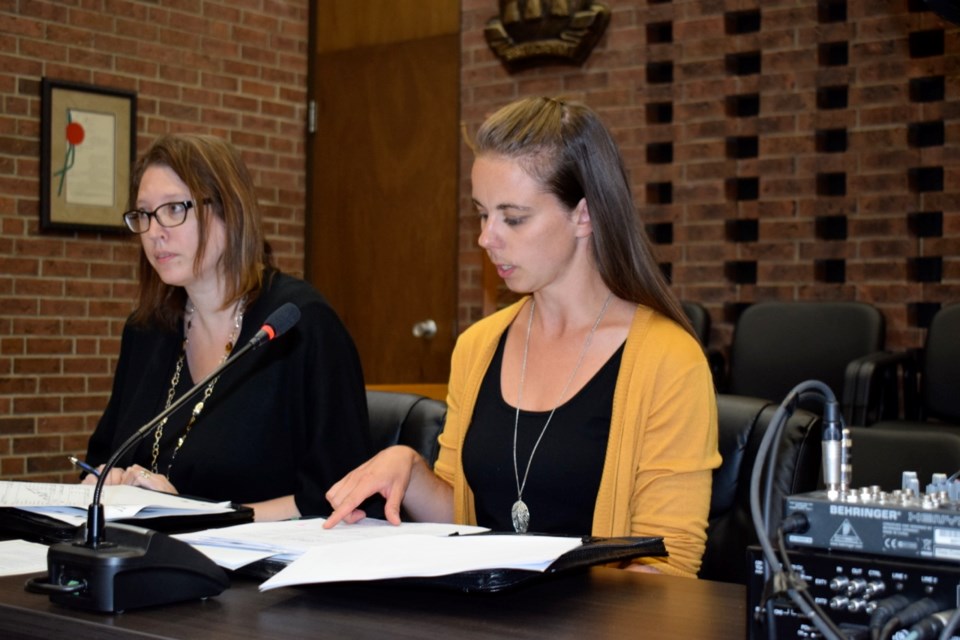The financial picture for the City of Estevan continues to improve, according to audited financial statements released at Monday night’s council meeting.
Gisele Bourgeois and Ashley Rushton were at the meeting to present the in-depth, annual picture of the city’s fiscal situation. It shows that for the year ending Dec. 31, 2019, the city had financial assets of $14.8 million, and liabilities of $31.6 million, leaving the city’s net debt at $16.8 million.
The net debt was at $18.8 million at the end of 2018.
The city had $6.12 million in cash and temporary investment as of Dec. 31, which was down from $7.17 million the previous year. A little more than half, $3.15 million, was tied up in restricted funds for initiatives such as the water intake project that received federal and provincial support to shift the city’s primary water source from Boundary Dam to Rafferty Dam.
The water source switch-over occurred Monday.
“I consider it really positive news when we reduce another $2 million from the net debt, and you refer to it each year about the need to keep going on that, because in my belief, we operate in the one industry where there is no need for debt,” said Councillor Greg Hoffort.
“It’s truly my hope that this will keep going in that direction.”
When Hoffort asked about council’s effort to drop the net debt by about $2 million a year, the auditors expressed their support, saying the city can only do so much every year.
If there’s a number the city wants to get to zero, Hoffort said it is net debt.
As for the liabilities, the long-term debt dropped from a little more than $28 million to approximately $23.7 million as the city continues to work on that number. It was noted during the meeting that the city did not borrow any money for capital projects in 2019, choosing instead to wait for January 2020 to borrow its annual $2 million for larger capital projects.
“Whenever we can save the interest on a term borrowing limit, we do. So, because … with the intake project, the large expenses didn’t happen until December, January and February, we decided to delay our borrowing until January,” said city manager Jeff Ward.
Another $2 million will likely be borrowed in the fall, due to the way the city managed expenses for the water intake project. Also, the provincial government front-end loaded the municipal operating grants this year to assist municipalities facing challenges associated with COVID-19.
In recent years, the city has paid down $4 million in debt while taking out $2 million for capital.
Taxes and other unconditional revenues accounted for the bulk of the city’s income last year at a little more than $21 million. Fees and charges generated approximately $10 million and conditional grants $1.14 million. Total revenues were at approximately $33.17 million.
Operating expenses came in at $31.53 million, with general government services (nearly $6.2 million), protective services ($6.05 million), transportation services ($5.91 million), recreation and cultural services ($7.25 million) and utility services ($4.84 million) accounting for most of the expense.
The overall surplus of revenue over expenses before capital contributions was approximately $1.63 million. The city also received $5.19 million through provincial federal capital grants and allocations.
Ward pointed out that when he looked back on audited financial statements from December 2013, the net debt stood at $35 million, so that figure is now less than half of what it was.
“I applaud council’s decisions on tax rates and borrowing to make sure that we can keep all that in mind so we continue to do larger projects,” said Ward.
Ward said there weren’t any surprises in the document for 2019. The current approach allows the city to complete those large scale projects.
COVID-19 will have an impact on the city’s finances, he said. When the pandemic hit, the city announced utility disconnections due to arrears would be suspended until Sept. 1, late payment charges for utility bills would be suspended until Sept. 1. As for property tax bills, the city provided a two-month grace period to provide people with additional time to pay their 2020 property taxes, with the deadline to pay property taxes pushed back from July 30 to Sept. 30.
Revenues from fees and services will be down because the Estevan Leisure Centre was closed for several months, and recreation and other facilities, such as Affinity Place, couldn’t be rented out.
On the flip side, the city and other all communities across the province received support from the Municipal Economic Enhancement Program (MEEP). Estevan used the money for the expansion of the Estevan Police Service building. And, as mentioned before, the municipal operating grant funding was paid up-front in June.
“We’re monitoring our cash right now, and we part of a group that’s lobbying the federal government that’s doing something,” said Ward.
But the city won’t be looking to dip into the bank overdraft or short-term borrowing because of a cash shortfall caused by the pandemic.



